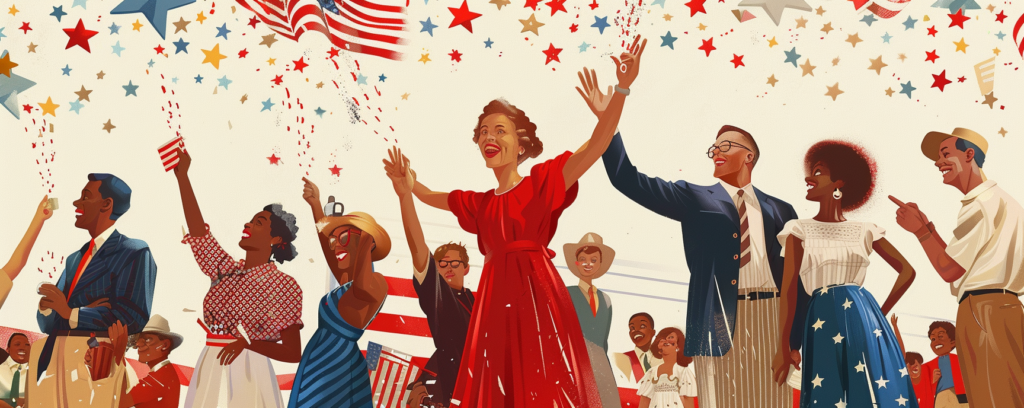[dc]A[/dc]s the fireworks light up the night sky on the Fourth of July, Americans come together to celebrate the birth of a nation founded on the principles of liberty and justice for all. Among the cherished freedoms enshrined in the American ethos, religious freedom stands out as a cornerstone of the nation’s identity. The United States has long championed an atmosphere of religious freedom, fostering a society where individuals can worship freely, practice their faith without fear of persecution, and express their beliefs openly.
The foundation of religious freedom in the United States can be traced back to the early colonial period, when diverse religious groups sought refuge from persecution in Europe. The Pilgrims, Puritans, Quakers, and Catholics were among those who fled to the New World in search of a place where they could practice their faith without interference. This early migration set the stage for a pluralistic society, where religious diversity became a defining feature of the American experience.
One of the most significant milestones in establishing religious freedom was the adoption of the Virginia Statute for Religious Freedom in 1786, authored by Thomas Jefferson. This landmark legislation declared that “no man shall be compelled to frequent or support any religious worship, place, or ministry whatsoever,” laying the groundwork for the First Amendment to the United States Constitution. Ratified in 1791, the First Amendment enshrines the principles of religious freedom, stating, “Congress shall make no law respecting an establishment of religion, or prohibiting the free exercise thereof.” These words have served as a bulwark against religious discrimination and government interference in religious matters, ensuring that all citizens have the right to practice their faith as they see fit.
Throughout American history, the judiciary has played a crucial role in interpreting and upholding the principles of religious freedom. Landmark Supreme Court cases such as Reynolds v. United States (1878), which addressed the issue of polygamy, and Engel v. Vitale (1962), which dealt with prayer in public schools, have helped define the boundaries between church and state. These decisions have reinforced the idea that the government must remain neutral in matters of religion, neither endorsing nor inhibiting religious practices.
In addition to constitutional and legal protections, the United States has fostered a culture of religious freedom through its commitment to civil rights and social justice. The Civil Rights Act of 1964, for instance, prohibits discrimination based on religion, ensuring that individuals are not denied employment, housing, or public accommodations due to their faith. This legislative framework has been instrumental in promoting an inclusive society where people of all religions can thrive.
The American commitment to religious freedom extends beyond its borders, influencing international human rights policies. The United States has been a vocal advocate for religious freedom worldwide, often tying foreign aid and diplomatic relations to the protection of religious minorities in other countries. This global leadership underscores the nation’s dedication to the principle that religious freedom is a fundamental human right.
As we celebrate Independence Day, it is important to recognize and honor the ways in which the United States has encouraged an atmosphere of religious freedom. From its colonial beginnings to its role on the world stage, the nation has championed the right of individuals to believe, worship, and express their faith freely. This commitment to religious liberty remains a defining aspect of the American identity, reminding us of the enduring values that continue to shape our society.
